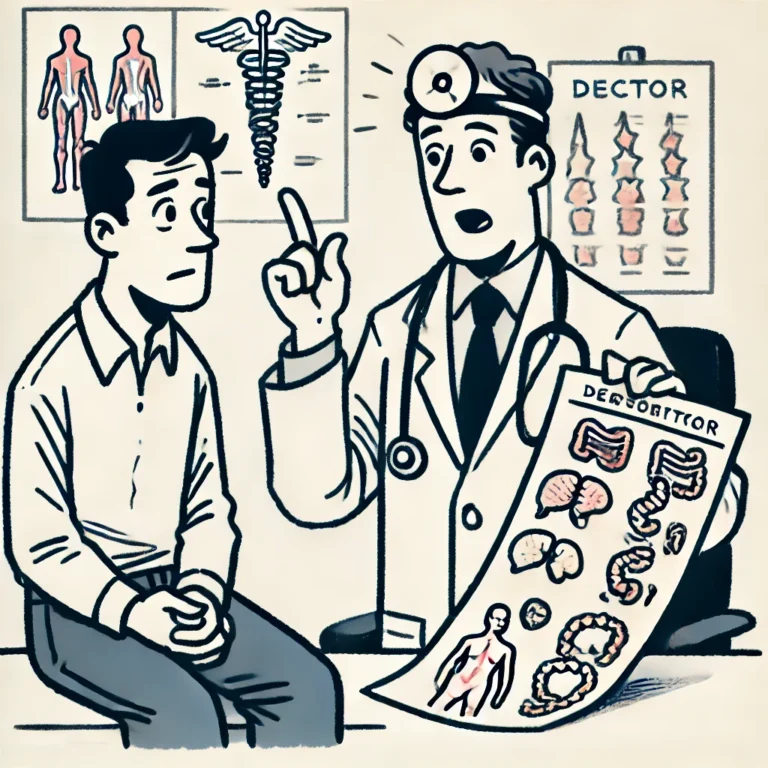If you’ve ever dealt with a complex medical issue—either personally or as a caregiver—you already know how much hinges on getting an honest, unbiased medical opinion. A strong case, whether for treatment decisions, second opinions, or even legal matters, relies on medical assessments that are rooted in facts, not guesswork or personal bias.

The Problem With Biased or Superficial Medical Opinions
One of the biggest frustrations people face is getting conflicting diagnoses or treatment recommendations that feel more like opinions than facts. I’ve seen cases where one doctor dismisses symptoms as “stress-related” while another finds a serious underlying condition. This happens when assessments aren’t thorough, or worse, when biases—conscious or not—creep in.
For example, there was a well-documented case in The BMJ about how women’s heart attack symptoms are often misdiagnosed because they don’t present the same way as men’s. That’s a perfect example of why medical opinions need to be rooted in hard data, not assumptions.
What Makes a Medical Opinion Reliable?
- It’s Based on Solid Evidence, Not Just Experience
Experience matters, but no doctor should rely solely on personal gut feelings. Reliable medical opinions come from up-to-date research, clinical trials, and diagnostic data. If a provider isn’t citing peer-reviewed studies or established medical guidelines (think Mayo Clinic, The Lancet, or JAMA), that’s a red flag. - The Doctor Actually Listens to the Full Patient History
A 10-minute appointment often isn’t enough to get the full picture. A solid medical opinion takes into account past treatments, lifestyle factors, and underlying conditions. Age, gender, and even environmental exposure (like chemicals at work) can play a huge role in diagnosis. - It Considers ALL Reasonable Treatment Paths—Not Just the Most Common One
Ever been told there’s only one way to treat something, only to find out later there were multiple options? A good doctor doesn’t just push the go-to solution—they break down the risks and benefits of every realistic approach. For example, chronic pain patients are often funnelled toward opioids when non-pharmaceutical alternatives (physical therapy, nerve blocks, even diet changes) could be just as effective with fewer risks.
Why Objectivity in Medical Opinions Is Critical
Medical professionals are human. They have their own training, personal biases, and sometimes even external pressures (like insurance or hospital policies). That’s why objectivity is everything.
Take the issue of misdiagnosis in marginalized communities. Studies show that Black patients are less likely to receive adequate pain management due to outdated (and completely false) medical assumptions. That’s why objective, evidence-based assessments—not ones influenced by subconscious biases—are essential for fair and accurate treatment.
Communication Matters—A Lot
Medical jargon can make anyone’s head spin. A strong medical opinion isn’t just accurate—it’s understandable. A good doctor should be able to break down options in plain language. They should encourage questions and make sure the patient understands their choices.
One trick that works is the “teach-back” method, in which a doctor asks the patient to explain the diagnosis and treatment plan to them. Studies show this dramatically improves patient outcomes because it ensures clarity.
The Importance of Documentation
If you’re dealing with a long-term condition, disability claim, or legal case, document everything. A strong medical opinion should be written clearly. It should explain why certain diagnoses were considered (or ruled out) and what treatment options exist. Not to mention why specific recommendations were made. Without that paper trail, it’s easy for things to get dismissed or lost in medical bureaucracy.
Bottom Line
Getting an honest, objective medical opinion isn’t just about better healthcare—it can be the difference between proper treatment and years of misdiagnosis. If you ever feel like a medical opinion is rushed, vague, or dismissive, don’t be afraid to ask for a second (or third) one. Your health isn’t something to gamble with.
Author: Dr. Mark Leland
Bio: Dr. Mark Leland is a board-certified internal medicine specialist. He has over 15 years of experience in diagnostic medicine and patient advocacy.


